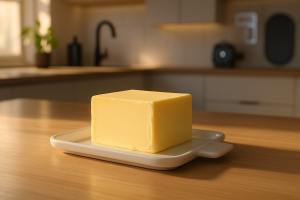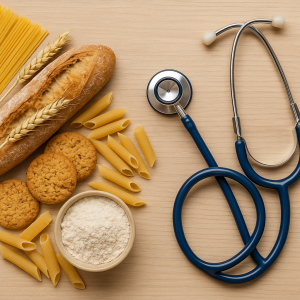 Potassium is a chemical element with the symbol K and atomic number 19. It is a silvery-white metal that is soft enough to be cut with a knife. Potassium is an essential nutrient for the human body and is necessary for the proper functioning of cells, tissues, and organs.
Potassium is a chemical element with the symbol K and atomic number 19. It is a silvery-white metal that is soft enough to be cut with a knife. Potassium is an essential nutrient for the human body and is necessary for the proper functioning of cells, tissues, and organs.
Health benefits of potassium
- Maintaining normal blood pressure: Potassium helps regulate fluid balance in the body and can help lower blood pressure by balancing out the effects of sodium.
- Heart health: Potassium is important for maintaining a healthy heart rhythm and can help reduce the risk of stroke and heart attack.
- Bone health: Potassium is necessary for the proper development and maintenance of strong bones.
- Muscle function: Potassium is important for proper muscle function and is necessary for the contraction and relaxation of muscles.
- Water balance: Potassium helps regulate the balance of water in the body and is necessary for proper hydration.
- Electrolyte balance: Potassium is an electrolyte, which means it helps regulate the balance of electrolytes in the body.
- Nerve function: Potassium is necessary for proper nerve function and helps transmit nerve impulses.
Best potassium sources
There are many good sources of potassium in the diet, including:
- Avocados: One medium avocado contains about 975 milligrams of potassium.
- Chicken: 200 grams of chicken contain about 500-600 mg of potassium
- Fish: Some types of fish, such as salmon and halibut, are high in potassium. A 3-ounce serving of baked or grilled salmon contains about 326 milligrams of potassium, and a 3-ounce serving of baked or grilled halibut contains about 365 milligrams of potassium.
- Milk and yogurt: One cup of milk contains about 366 milligrams of potassium, and one cup of plain yogurt contains about 579 milligrams of potassium.
- Potatoes: One medium baked potato with skin contains about 926 milligrams of potassium.
- Beans: One cup of cooked beans, such as kidney beans or black beans, contains about 700-800 milligrams of potassium.
- Tomatoes: 1 medium tomato contains 300 mg of potassium
- Tomato juice: 1 cup of tomato juice contains 560 mg of potassium
- Bananas: One medium banana contains about 422 milligrams of potassium.
- Nuts: One ounce of nuts, such as almonds or peanuts, contains about 200-300 milligrams of potassium.
- Leafy green vegetables: One cup of cooked spinach contains about 839 milligrams of potassium, and one cup of cooked kale contains about 547 milligrams of potassium.
- Dried fruit: One ounce of dried apricots or prunes contains about 250-300 milligrams of potassium.
It is important to consume a variety of these foods to ensure an adequate intake of potassium. It is also important to speak with a healthcare professional before making any changes to your diet.
Article continued below
Daily potassium requirements
The recommended daily intake of potassium for adults is 4700 milligrams per day. This recommendation is for adults who are 19 years and older. The recommended daily intake for children and adolescents varies depending on age and sex.
If you are unsure about your potassium intake or have any health concerns, it is important to speak with a healthcare professional. They can help determine the right amount of potassium for you based on your age, sex, and overall health.






